The fatal shooting of unarmed African-American teen Michael Brown in Ferguson, MO has sparked dialogue in cities around the country. City leaders are responding to the events by hosting town hall meetings with community members.
Citizens bring their questions, concerns, and opinions to the table in hopes that issues such as police-community relations, racial tension, and transparency are addressed. Read on to see how individual cities are attempting to create local solutions after the events in Ferguson.
Nashville, TN
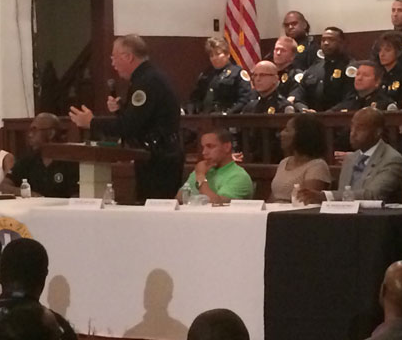 A panel of community leaders in Nashville, TN took questions and comments from the audience at their town hall meeting in August, according to Nashville Scene.
A panel of community leaders in Nashville, TN took questions and comments from the audience at their town hall meeting in August, according to Nashville Scene.
The goal of the meeting was to build a stronger relationship between Nashville police and citizens, to create a meaningful dialogue, and to bring community organizations that work with young men together.
Metro Police Chief Steve Anderson made it clear that the Nashville Police Department would stand with the citizens, rather than against. “If you need to march, if you need to protest, if you need to get a message out, we’ll be there with you,” he said.
Columbia, NC
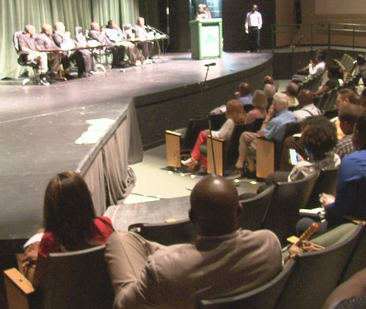 At a town hall meeting held at Eau Claire High School in Columbia, NC, attendees came to the meeting with questions and concerns for city leaders, specifically about Columbia’s police tactics, according to WLTX 19.
At a town hall meeting held at Eau Claire High School in Columbia, NC, attendees came to the meeting with questions and concerns for city leaders, specifically about Columbia’s police tactics, according to WLTX 19.
“I’m glad this forum is happening,” said Tyra Mitchell, whose son was killed in a police shooting last year, “but it should have happened before hand."
Baltimore, MD
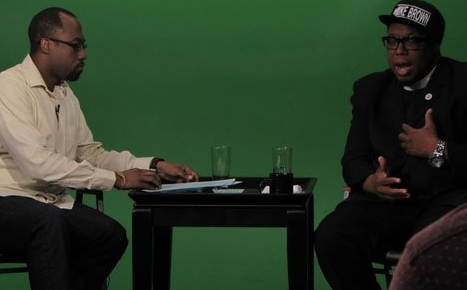 On Aug. 24, Baltimore city leaders held a town hall meeting to discuss Michael Brown’s death in Ferguson, as well as brainstorm ways in which the African-American community can be engaged in finding solutions to problems in their community. Bloggers, educators, and journalists attended the meeting with their Baltimore neighbors, according to The Baltimore Times.
On Aug. 24, Baltimore city leaders held a town hall meeting to discuss Michael Brown’s death in Ferguson, as well as brainstorm ways in which the African-American community can be engaged in finding solutions to problems in their community. Bloggers, educators, and journalists attended the meeting with their Baltimore neighbors, according to The Baltimore Times.
Blogger Janae True expressed her thoughts on the meeting. “After this discussion I would like Baltimoreans mobilized toward demanding safer streets and regaining control of our communities,” said True.
St. Louis, MO
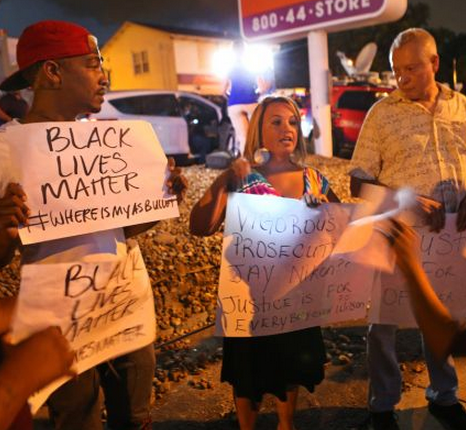 The Missouri History Museum hosted a town hall meeting in St. Louis on Aug. 25 at 6 p.m. The meeting was held in response to the ongoing tension in Ferguson, a St. Louis suburb.
The Missouri History Museum hosted a town hall meeting in St. Louis on Aug. 25 at 6 p.m. The meeting was held in response to the ongoing tension in Ferguson, a St. Louis suburb.
Mark Albrecht, an activist and founder of the Project Engage Network, called the meeting a “vehicle for community discussion,” according to the St. Louis Post-Dispatch.
Museum spokeswoman Leigh Albright Waters felt that hosting the meeting at the museum was appropriate. “The Missouri History Museum has always made it a point to address difficult topics. We felt it was important to have events and programming that relate to the current situation in Ferguson,” Waters said.
Durham, NC
 The African and African-American studies department at Duke University in Durham, NC hosted a town hall meeting in response to the shooting of Michael Brown in Ferguson, MI.
The African and African-American studies department at Duke University in Durham, NC hosted a town hall meeting in response to the shooting of Michael Brown in Ferguson, MI.
Students are using social media as a powerful activism tool, according to the Duke Chronicle, yet Professor Mark Anthony Neal said that more has to be done to create change.
Topics discussed included relationships with the police, lack of transparency, and excessive court proceedings, according to Duke University's, The Chronicle.
Sociology professor Angel Harris emphasized that any change in policing will require “a real and open dialogue about race.”
Flagstaff, AZ
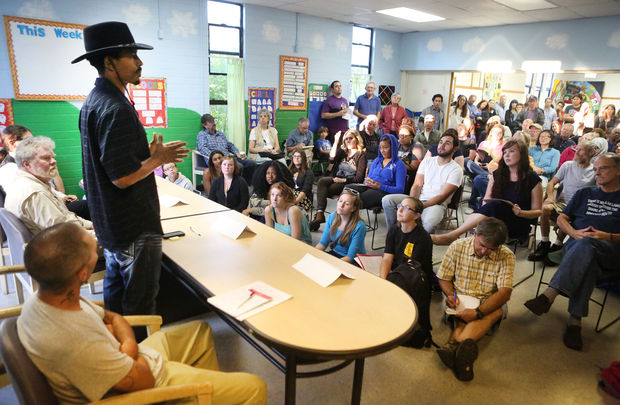 Flagstaff, AZ citizens addressed issues like minority safety and racial disparities at a community and panel discussion hosted by Northern Arizona University’s Philosophy in the Public Interest last Friday evening.
Flagstaff, AZ citizens addressed issues like minority safety and racial disparities at a community and panel discussion hosted by Northern Arizona University’s Philosophy in the Public Interest last Friday evening.
Community members, activists, NAU students and faculty, City Council members, and the Flagstaff Police Department attended the discussion, according to the Arizona Daily Sun.
Some attendees shared personal stories of being racially profiled by police in Flagstaff, and Flagstaff Police Department Chief Kevin Treadway proposed potential solutions to the problem. They included filing reports of these incidents more frequently and requiring officers to wear cameras at all times.
Pastor Timothy Swanson also proposed ideas for progress, including more social events connecting whites and racial minorities. “We just don’t get to know each other,” he said.
Add new comment